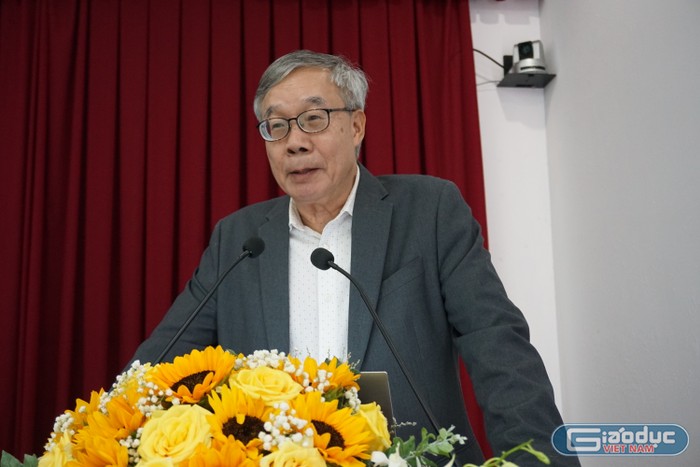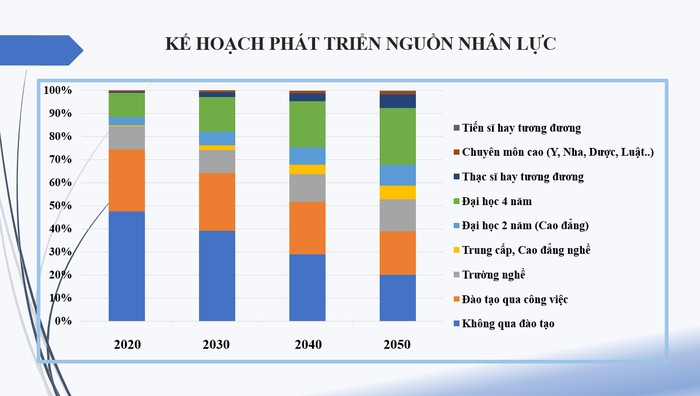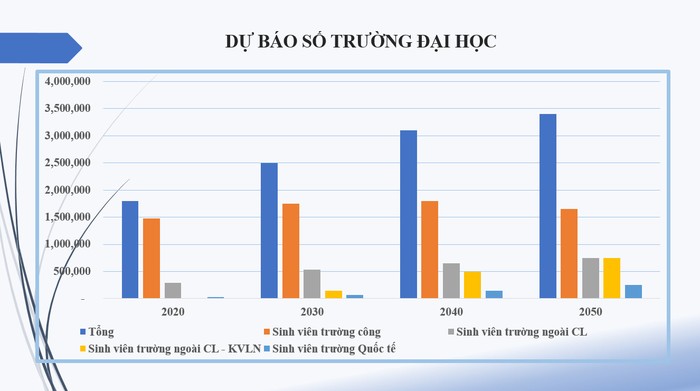Ed.D Tran Duc Canh proposed a model of human resource development associated with socio-economic development
According to Ed.D Tran Duc Canh, proposing a model for Vietnam’s human resource development in the next 30 years needs to continue to be closely linked to labor market needs and socio-economic development. In his perspective, it is expected that Vietnam’s population will increase to about 110,000,000 people by 2050, an increase of 13% compared to 2020 and an average increase of about 43% per year. Although the population is growing slowly, this situation leads to population aging, which has a great impact on labor productivity of the entire economy, social structure and individual lives.

The human resource development model in the period 2021 – 2050, according to him, needs to be closely linked to the needs of the labor market and socio-economic development. He analyzed some important points to explain the necessity of this model:

- The rate of untrained unskilled workers in 2020 reached a high level, accounting for about 47%, mainly concentrated in rural and mountainous areas. It is expected that this rate will decrease to 20% by 2050.
- Due to the complexity of daily work and the ease of accessing external training programs, the number of workers receiving training before starting work will increase, leading to a decrease in the need for trained workers. on-site generation from 27% to 19%.
- Vocational training systems vary in duration from 3 months to 2 years, and primary and secondary training systems are expected to remain at 10% in the next 30 years, but there is a large number of students who do not graduate from high school. Common.
- The plan for the post-secondary stream includes 30% of students attending technical/vocational high school over the next 30 years, increasing from 0.2% to 2.5%. Students graduating from vocational/technical high school can go to work immediately or continue studying at college or university if they wish.
- The demand for professional human resources, technicians and managers has increased sharply, and the proportion of the population with college degrees is expected to increase from 3.5% to 9%.
- The number of people with a 4-year university degree is expected to increase from 11.5% to 26.1%, meeting the demand for professional, technical and management skills.
- The number of people with master’s degrees is expected to increase significantly, from 0.6% to 6%, to meet the demand for high management and expertise.
- The number of highly trained people such as doctors, lawyers, dentists, pharmacists… is expected to increase from 0.4% to 1.10% of the total workforce, to meet the needs of society. .
- The number of people with doctoral degrees is expected to increase from 0.05% to 0.3%, of which an estimated 80% will participate in teaching and research at universities, research institutes or corporate organizations. .

In the context of increasing the number of undergraduate and graduate students, he also proposed that it is necessary to increase the number of non-public universities, including private schools, non-profit private schools and international schools, to ensure ensure diversity and competition in the higher education system.
In addition, he also proposed to classify colleges into two systems: Direct pathway to university and professional system. In addition, colleges should also have the ability to train short-term courses, suitable for many types of students and lifelong learning, similar to the 2-year university or community college model in the US. . He also especially emphasized investing in educational technology, especially higher education, to adapt to rapid changes in technology and educational approaches.
Ngoc Bich
Source: Report of education expert Tran Duc Canh – “Proposing a model for developing Vietnam’s human resources associated with socio-economic development,” Proceedings of the national scientific conference “First human resources private sector for higher education in the context of autonomy.” pp 222-230.



